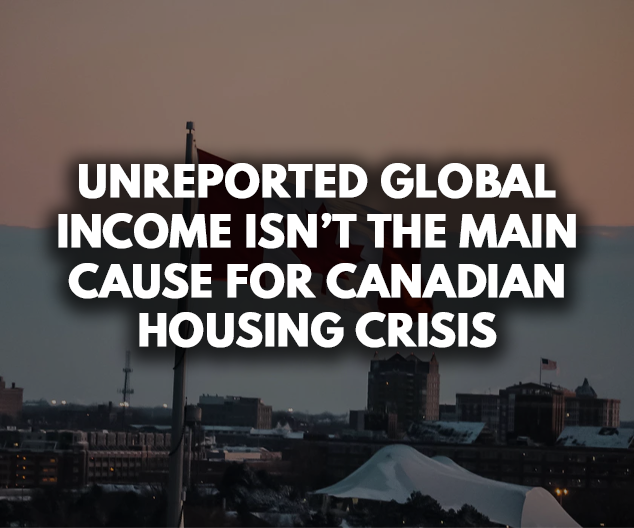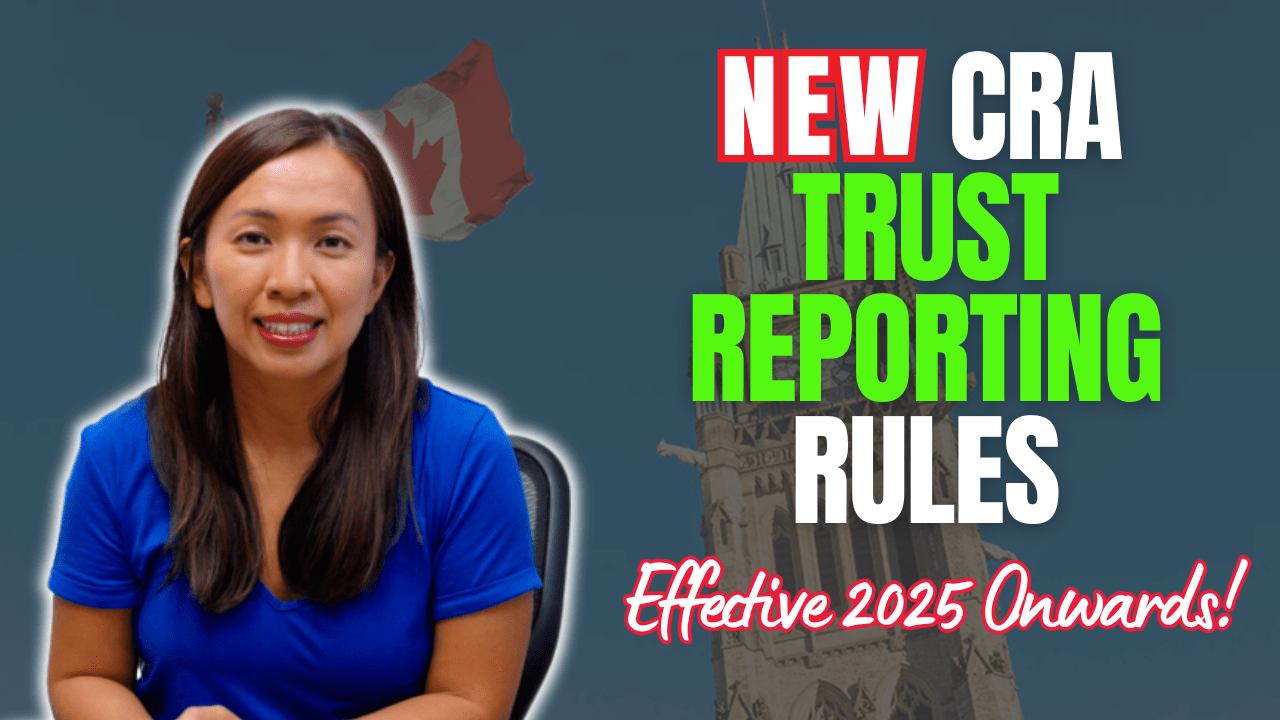A recent headline from Global News caught my eyes “CRA study from 1996 found migrants bought BC luxury homes despite having low incomes”.

CRA conducted a study 25 years ago in 1996 found that a majority of homes bought in Burnaby and Coquitlam were purchased by immigrants who declared minimal income.
Specifically, 33 out of 37 homes worth more than $800K purchased in a two-month period in 1994 were purchased by recent immigrants who declared a global income of $16,430.
The other 4 buyers who were long-term residents within the same period were showing over $263K of annual income.
Another example found was that one buyer reporting $174 income in 1994 purchased a $2.88-million home in the same year.
Some were reporting negative global income as well.
The article is alluring that these immigrants under-report their global income, possibly “laying the foundation of Vancouver’s current housing crisis”.
The article also suggested that long-time Canadian tax residents buying similar houses would have to make a lot more money and pay a lot more taxes to afford them.
The fact that these new immigrants were reporting such low global income created an unfair playing field for local long-term residents.
While I agree that there’re immigrants who are not reporting all global income on their Canadian tax returns, this article also failed to consider many other factors new immigrants have to face.
1. New immigrants are required to declare the amount of cash they’re bringing in when they move to Canada
When new immigrants first land in Canada, they must submit a detailed listing of what they have and how much they will transfer to Canada in the near future.
New immigrants may have been millionaires in their home country, to begin with. However, if they liquidate all their assets before moving to Canada, they can transfer the money to Canada without paying any taxes.
It isn’t unusual for immigrants to sell all they have in their home country, have enough cash to buy a place, and have a sufficient amount of cash reserve to pay for their living expenses.
2. Information about business and assets would have to be supplied to the government for a certain type of immigration application
My family was approved to come to Canada because of my dad’s business in Hong Kong.
He was required to provide information about his business to the Canadian government and his statement of assets during the application process.
If our finances didn’t meet the minimum requirement, we couldn’t have got approved.
In other words, the Canadian government purposely selects certain immigrants who have entrepreneurial backgrounds and certain assets to come to Canada.
Many of these immigrants were successful financially, to begin with. As a result, their assets and previous income would not have to be taxed by CRA before becoming Canadian residents.
3. Difficulty of new immigrants to get a job or open a business immediately
My family had a humble beginning. We went through multiple applications and interviews before we could get approved.
One of the requirements was that my family would have to open a business locally and hire at least one local Canadian resident within 2 years after coming to Canada.
Starting a business is challenging.
When I first started my accounting business, I made very little money. Nothing compared to what I made when I was working for someone else.
It isn’t surprising that many of the new immigrants are reporting a minimal level of income.
Immigrants who came here as skilled workers would also have a hard time getting a job.
It isn’t easy to convince local employers to trust someone who has no local experience and education.
Many immigrants took a long time to settle down – which means that they would not have had a job to earn any income.
Then they started looking for jobs, which normally pay less than what they made back in their home countries.
They still come with their savings. They still have enough assets/cash they earned before coming to Canada to support their initial lifestyle.
4. Lack of tax knowledge
I moved to Canada when I was 16, and I was the only one who spoke English. I still remembered how difficult it was for my mom to get any local knowledge.
Everything was a process… from applying for health and SIN cards to getting a driver’s license.
From renting a place, furnishing the property, to taking public transit, everything was a learning experience.
I remembered that my mom often turned to some self-proclaimed specialist that could speak English and Cantonese for advice.
Some are true specialists; some may just know a bit more than my mom.
It isn’t particularly easy for a newcomer to understand everything, including our complicated tax law.
These new immigrants might not even be aware that they are required to report global income. It isn’t an excuse; it’s just the fact.
5. CRA can use the Net Worth Method to hunt down undeclared income
For those of you who don’t know, CRA has a secret weapon that can catch unreported income locally or globally. It’s called the “Net worth method”.
If Canadians are buying luxury homes and vehicles with minimal income reported, CRA can take the value of your homes and vehicles, add them all up, compared to all your after-tax income from all the years, to see if you have any unreported income.
Canadian residents can provide proof of source of income to how they afford to purchase these luxury items. If they originally got their money from funds outside of the country, they would have to show documents proving so.
It might not have been easy, but they do have their tools to go after unreported income and unreported global income.
As a long-term Canadian resident, once an immigrant and an accountant that focuses on working with real estate investors, we need to consider all factors as to why our housing prices keep going up and why we are faced with a housing crisis.
Immigration increases the housing demand and pushes housing prices up… but Canada has been a country of immigrants since the 16th century.
Can we afford not to have immigrants? Probably not.
Unreported global income from other countries by new immigrants may have been just one small piece of the puzzle, but by no means is it the main cause.
Until next time, happy Canadian Real Estate Investing.
Cherry Chan, CPA, CA
Your Real Estate Accountant





